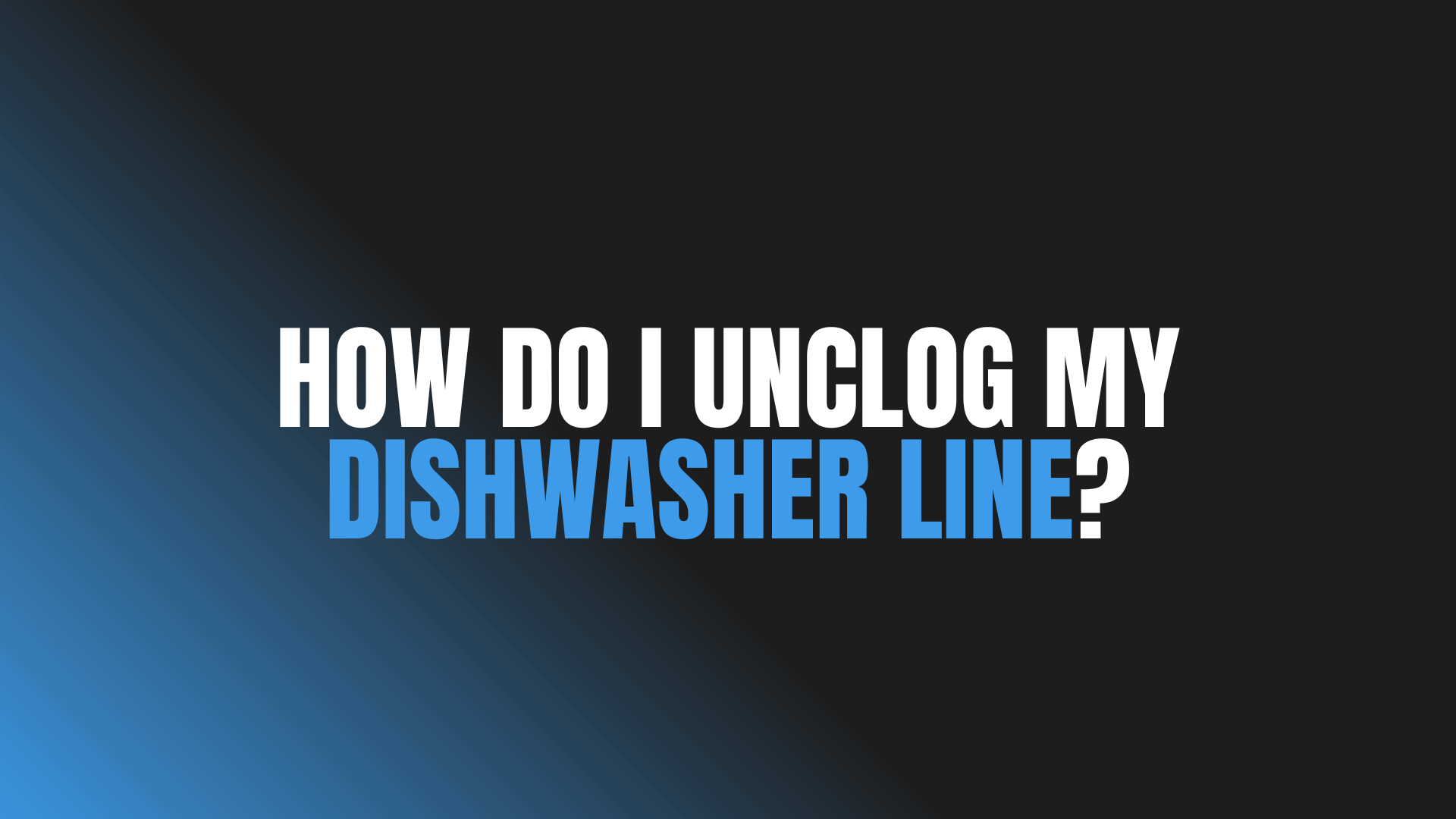
Question: How Do I Unclog My Dishwasher Line?
Answer: To unclog a dishwasher line check and clean the air gap, dispose of food debris from the filter and drain basket, then try a vinegar and baking soda solution followed by hot water.
Clearing a Blocked Dishwasher Drain
A clogged dishwasher drain can disrupt your kitchen routine. Standing water, foul odours, and poorly cleaned dishes signal a problem. This guide provides simple, effective steps to identify and resolve dishwasher drainage issues, restoring your appliance to peak performance. We’ll cover common causes, preventive measures, and when to call a professional.
This article empowers you to diagnose and fix the problem yourself, saving you time and money. You’ll learn how to locate the blockage, use readily available tools, and implement preventative strategies. Follow these instructions to enjoy a smoothly operating dishwasher and sparkling clean dishes.
Identifying the Clog Source
Pinpointing the blockage source is crucial for effective unclogging. The blockage might reside within the dishwasher itself, the drain hose, the garbage disposal, or the main drain line.
Start by inspecting the dishwasher’s filter and spray arm. Food particles and debris often accumulate in these areas, restricting water flow. Check the air gap, a small cylindrical device on the countertop near the sink. A clogged air gap can also impede drainage.
Next, examine the drain hose. Kinks, blockages, or clogs within the hose can prevent proper drainage. Finally, consider the garbage disposal and the main drain line. These shared drainage systems can become blocked, affecting the dishwasher’s ability to drain.
Click the link for more about Blue Kitchen Refacing
Related Article: How to Tell If Dishwasher Arms Are Clogged?
Related Article: Can You Install a Dishwasher Without a Plumber?
Step-by-Step Unclogging Process
Begin by disconnecting the dishwasher’s power supply. Safety is paramount. Turn off the circuit breaker or unplug the appliance.
-
Clearing the Dishwasher Filter and Spray Arm:
Locate and remove the dishwasher filter, usually at the bottom of the appliance. Rinse it thoroughly under hot water. Remove the spray arm and clean any blockages. -
Checking the Air Gap:
Remove the air gap cover. Clean the air gap components, removing any debris. Check the connected hose for blockages. -
Inspecting and Clearing the Drain Hose:
Disconnect the drain hose from the dishwasher and the garbage disposal or drain pipe. Inspect for kinks or clogs. Use a wire hanger or plumbing snake to clear any obstructions. Flush the hose with hot water. -
Addressing Garbage Disposal and Drain Line Issues:
If you suspect a blockage in the garbage disposal, run it with cold water. If the problem persists, consult a plumber. For main drain line issues, use a plumbing snake or contact a professional plumber.
Preventing Future Clogs
Prevent future clogs with regular maintenance.
- Clean the dishwasher filter weekly.
- Rinse dishes before loading them.
- Avoid overloading the dishwasher.
- Use a garbage disposal regularly to prevent food buildup.
- Pour boiling water down the drain monthly to clear any residual grease.
These simple steps ensure your dishwasher drains efficiently and prevents recurring clogs. A little preventive care goes a long way in maintaining a smoothly functioning appliance and avoiding future headaches.
When to Call a Professional
If you’ve followed the steps above and your dishwasher still won’t drain, it’s time to call a qualified plumber. Persistent drainage problems may indicate a more serious issue requiring professional expertise.
Attempting complex repairs yourself can potentially worsen the problem. A plumber possesses the knowledge and tools to diagnose and address complex plumbing issues effectively. Don’t hesitate to seek professional assistance when needed.
Conclusion
Unclogging your dishwasher line can be a simple DIY task. By systematically checking and cleaning the components of your dishwasher’s drainage system, you can resolve most clogs. Remember to prioritize safety, gather the necessary tools, and follow the steps carefully.
Regular maintenance and preventative measures can help avoid future clogs and keep your dishwasher running smoothly. However, if you encounter persistent issues, don’t hesitate to call a professional plumber for assistance. By understanding how your dishwasher drains and taking appropriate action, you can enjoy a clean and efficiently operating appliance.

Blue Malue Get in touch with Blue here.
